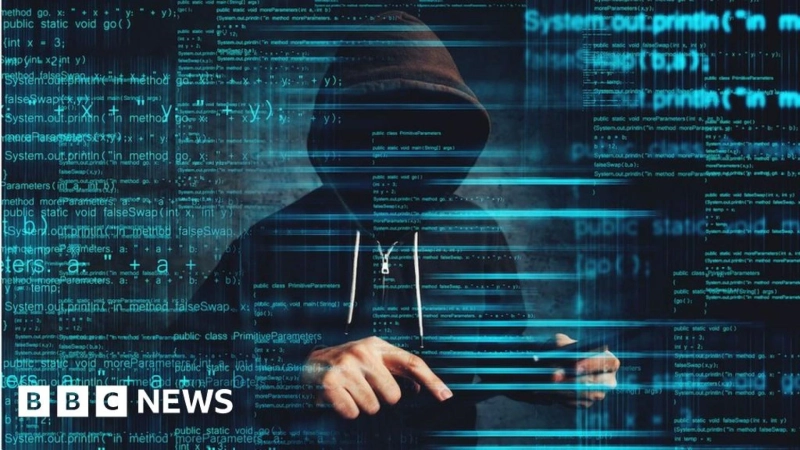Introduction
The bigfat CC dark web, with its hidden networks and anonymous browsing, has become a hotbed for illicit activities. One of the most concerning aspects of the dark web is its role in international cyber warfare. In this article, we will explore the concept of international cyber warfare, the significance of the dark web in facilitating such activities, and the potential risks associated with it.
Understanding International Cyber Warfare
Definition and scope
International cyber warfare refers to the use of cyber attacks by nation-states or state-sponsored actors to gain an advantage in geopolitical conflicts. These attacks can target critical infrastructure, government systems, military networks, or even private organizations.
Motivations behind cyber warfare
The motivations behind cyber warfare can vary widely. Nation-states may engage in cyber warfare to gather intelligence, disrupt enemy operations, steal intellectual property, or even cause physical damage. It can also be used as a tool for espionage, political manipulation, or economic sabotage.
The evolving nature of cyber warfare
Cyber warfare is constantly evolving, with attackers utilizing increasingly sophisticated techniques and tools. The landscape of cyber warfare includes a wide range of attack vectors, such as malware, ransomware, phishing, DDoS attacks, and zero-day exploits. The dark web has emerged as a platform that facilitates the exchange of these tools, making it an attractive hub for cyber warfare activities.
The Dark Web's Role in International Cyber Warfare
Anonymity and encryption
The dark web provides a level of anonymity that is not easily achievable on the surface internet. Users can access websites and communicate with one another without revealing their identities or locations. This anonymity makes it difficult for law enforcement agencies and intelligence services to track down cyber attackers.
Marketplace for cyber weapons and tools
The dark web serves as a marketplace for cyber weapons and tools. Hackers and cybercriminals can sell or exchange malware, exploit kits, zero-day vulnerabilities, and hacking services on various underground forums and marketplaces. These tools can be used by state-sponsored actors to launch cyber attacks without leaving a trace back to their source.
Collaboration and information sharing
The dark web also enables collaboration and information sharing among cybercriminals and state-sponsored actors. Forums and chat rooms provide a platform for discussing attack techniques, sharing research, and coordinating activities. This collaborative environment allows attackers to learn from one another and improve their capabilities.
Money laundering and funding
The dark web facilitates money laundering and the funding of cyber warfare activities. Cryptocurrencies like Bitcoin are commonly used for transactions on the dark web, providing a level of anonymity that traditional currencies cannot offer. State-sponsored actors can use these platforms to finance their cyber warfare efforts, making it difficult to track the source of funding.
Risks and Challenges
Attribution and accountability
One of the biggest challenges in international cyber warfare is attribution. It is often difficult to identify the true source of a cyber attack, as attackers can mask their identities and locations using various tools and techniques. This lack of attribution makes it challenging to hold responsible parties accountable for their actions.
Escalation and unintended consequences
Cyber warfare has the potential to escalate conflicts between nations and lead to unintended consequences. A cyber attack that disrupts critical infrastructure or causes significant damage can provoke a military response, escalating the conflict to a higher level. Additionally, there is always a risk of collateral damage, where attacks intended for specific targets inadvertently affect innocent individuals or organizations.
Security vulnerabilities and defense
The dark web provides a breeding ground for the development and dissemination of security vulnerabilities. Attackers can discover and exploit vulnerabilities in software, networks, and systems, leaving governments and organizations struggling to defend against cyber attacks. The constant evolution of attack techniques and the availability of sophisticated tools on the dark web make it challenging to stay ahead of cyber threats.
Combating International Cyber Warfare
International cooperation and collaboration
Addressing the issue of international cyber warfare requires international cooperation and collaboration. Governments, law enforcement agencies, and cybersecurity organizations must work together to share intelligence, exchange best practices, and coordinate responses to cyber threats. International treaties and agreements can also play a role in regulating cyber warfare activities and promoting responsible behavior in cyberspace.
Investment in cybersecurity capabilities
Governments and organizations must invest in robust cybersecurity capabilities to defend against cyber attacks. This includes developing advanced threat detection and prevention systems, conducting regular security assessments, and educating employees about cybersecurity best practices. Investing in research and development to stay ahead of emerging threats is also crucial.
Public awareness and education
Raising public awareness about the risks and consequences of cyber warfare is essential. Educating individuals about basic cybersecurity hygiene, such as using strong passwords, being cautious of phishing attempts, and keeping software up to date, can help prevent successful attacks. Promoting a culture of cybersecurity within organizations and encouraging responsible online behavior is equally important.
Conclusion
The bigfat cc dark web's role in international cyber warfare cannot be ignored. Its anonymity, marketplace for cyber weapons, and collaborative environment provide a fertile ground for cyber attackers. Understanding the risks and challenges associated with international cyber warfare is crucial for governments, organizations, and individuals to effectively combat this threat. International cooperation, investment in cybersecurity capabilities, and public awareness are key components in mitigating the risks and consequences of cyber warfare. By taking proactive measures and staying vigilant, we can work towards a safer and more secure cyberspace.



